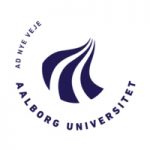项目介绍
Job description
We live in a world where robots are increasingly used in industry and healthcare but making them work naturally with humans remains a challenge. AI:Cybernetics develops a new kind of control system, where AI combines human signals (like muscle activity) with awareness of the environment (such as camera input). Imagine a robotic, prosthetic hand that automatically adjusts to the object you want to grab- without you needing to consciously control every movement. The same principle applies to robot arms helping with assembly tasks. The goal is intuitive and efficient teamwork between people and robots.
The goal of AI:Cybernetics lab is to enable human-machine interfacing for robotic applications where humans and robots share control (e.g. cobots in industry and bionic limbs in health). This requires comprehensive integration of many data sources coming from the user, robot, and environment. This challenge can be addressed only using advanced AI. This lab will develop a radically new paradigm for human control of complex robotic systems with high levels of agency and minimal cognitive effort.
The lab is looking for candidates for the following four stipends:
PhD Stipend 1: Brain-Machine Interfacing for Robotic ProsthesesShort description: This project will develop novel AI algorithms to decode human intention from electrophysiological signals (EEG, EMG) for intuitive control of upper-limb prosthetic devices. You will create machine learning methods that combine neural signals with environmental context to enable seamless object manipulation.
Specific requirements
- Master’s degree in Biomedical Engineering, Robotics or related fields
- Experience with processing and analysis of electrophysiological signals
- Strong programming skills (Python, MATLAB, and/or C++/C#)
- Knowledge of machine learning techniques, particularly for time-series data
- Background in prosthetics or human-machine interfaces is advantageous
PhD Stipend 2: Adaptive Control Systems for Semi-Autonomous Rehabilitation Robots
Short description: This project focuses on developing AI-powered control algorithms that allow rehabilitation robots to adapt to user capabilities and task requirements. You will create a framework that balances human control with robotic assistance, reducing cognitive load while maintaining user agency during daily activities.
Specific requirements:
- Master’s degree in Control Engineering, Biomedical Engineering, Robotics, or related fields
- Experience with control theory and implementation is advantageous
- Knowledge of rehabilitation robotics or assistive technologies
- Programming skills in C++/Python and familiarity with ROS is a plus
- Background in human factors or human-in-the-loop systems is beneficial
PhD Stipend 3: Computer Vision and Multimodal Sensing for Collaborative Robotics
Short description: This project will develop AI systems that combine visual data with other sensing modalities to support human-robot collaboration in industrial settings. You will create algorithms that allow robots to understand human actions, predict intentions, and respond appropriately during collaborative tasks.
Specific requirements:
- Master’s degree in Computer Science, Robotics, or related fields
- Strong background in computer vision and sensor fusion
- Experience with deep learning frameworks (PyTorch, TensorFlow)
- Knowledge of 3D perception systems (RGB-D cameras, LiDAR)
- Familiarity with industrial robotics applications is desirable
PhD Stipend 4: AI for Multimodal Data Fusion in Human-Robot Shared Control
Short description: This project will focus on developing AI methods for integrating heterogeneous data from humans, robots, and environments into a unified control framework. You will create attention-based models that balance human input with environmental awareness to optimize task performance while minimizing cognitive load.
Specific requirements:
- Master’s degree in AI, Robotics, or related fields
- Experience with multimodal machine learning architectures
- Strong programming skills and experience with deep learning frameworks
- Knowledge of human-robot interaction principles
- Background in transfer learning or domain adaptation is advantageous
Please clearly indicate at the top of your application which of the four projects you are applying for.
You may obtain further information concerning the scientific aspects of the stipends for Projects 1 and 2 from Associate Professor Jakob Lund Dideriksen, Department of Health Science and Technology, email: jldi@hst.aau.dk and for Projects 3 and 4 from Associate Professor Dimitris Chrysostomou, Department of Materials and Production, phone: +4521181918, email: dimi@mp.aau.dk.
All candidates should present these qualifications:
- Strong analytical and problem-solving skills
- Excellent written and verbal communication skills in English
- Ability to work independently and in cross-functional teams
Required application materials:
- CV including academic qualifications and relevant experience
- Brief description (maximum 1 page) of your motivation for the project(s)(stipend(s))
- Transcripts and diplomas
- List of publications (if applicable)
We expect to conduct interviews for all projects between May 19-30, 2025.
PhD stipends are allocated to individuals who hold a Master’s degree. PhD stipends are normally for a period of 3 years. It is a prerequisite for allocation of the stipend that the candidate will be enrolled as a PhD student at the relevant Doctoral School in accordance with the regulations of Ministerial Order No. 1039 of August 27, 2013 on the PhD Programme at the Universities and Certain Higher Artistic Educational Institutions. According to the Ministerial Order, the progress of the PhD student shall be assessed at regular points in time.
Assessment procedure:
The assessment of candidates for the position will be carried out by qualified experts.
Shortlisting will be applied. This means that after the application deadline, the heads of the departments, with the assistance of the hiring committee, will select the applicants to be assessed. All applicants will be informed whether they have been shortlisted for assessment or not. When the hiring process is completed, a final rejection will be sent to the applicants who are not considered for the position.
For further information about stipends and salary as well as practical issues concerning the application procedure contact Ms. Helle S. Thomsen, AAU PhD, email: hellest@adm.aau.dk,
For more information on The Doctoral School in Medicine, Biomedical Science and Technology: https://www.phd.aau.dk/health (stipend 1 and 2).
For more information on The Doctoral School of Engineering and Science: https://www.phd.aau.dk/eng (stipend 3 and 4)
The application is only to be submitted online by using the “Apply online” button below.
Diversity Statement
AAU wishes to reflect the diversity of society and welcomes applications from all qualified candidates regardless of personal background or belief.
Hiring process
The hiring process at Aalborg University may include a risk assessment as a tool to identify potential risks associated with new hires, ensuring the safety, compliance, and integrity of the workplace.
Working and living in Aalborg and Denmark
The main workplace will be Aalborg, Denmark. The city of Aalborg is lively with a wide variety of music and cultural events, top notch restaurants, fresh air and easy access to natural parks, forests, and great beaches.
Information about life in Denmark in general, health care, tax etc. can be found at the International Staff Unit page https://www.isu.aau.dk/and https://lifeindenmark.borger.dk/
Wages and employment
Appointment and salary as a PhD fellow are according to the Ministry of Finance Circular of 15 December 2021 on the Collective Agreement for Academics in Denmark, Appendix 5, regarding PhD fellows, and with the current Circular of 11 December 2019 on the employment structure at Danish universities.
Ref number
50-25042
Deadline
28.04.2025
相关项目推荐
KD博士实时收录全球顶尖院校的博士项目,总有一个项目等着你!




